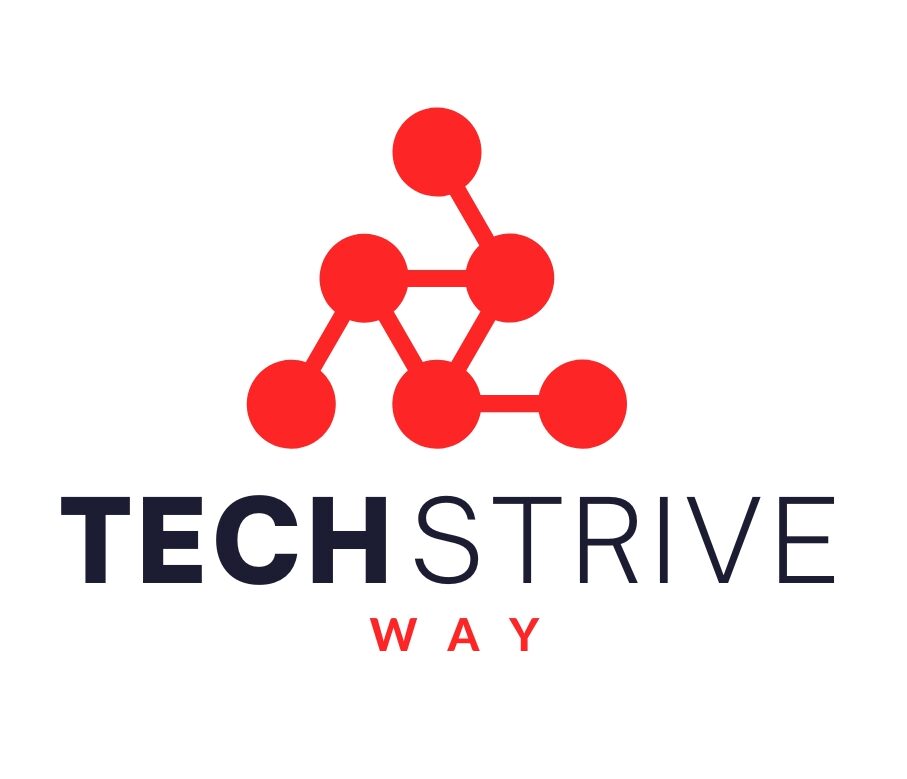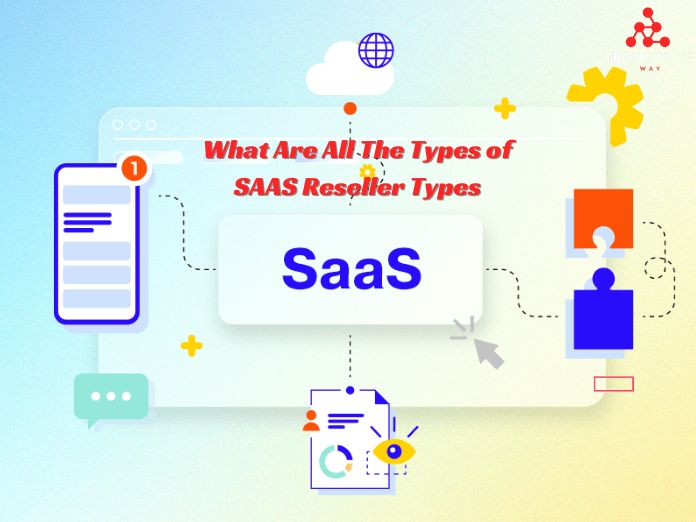SaaS (Software as a Service) reselling is a popular business model that allows third-party vendors to sell cloud-based software to their customers. These resellers typically earn commissions or margins based on their sales. Various types of SaaS resellers exist, each with its own approach to delivering value to customers and partnering with software providers. Below, we break down the most common SaaS reseller types.
1. White-Label Resellers
White-label resellers offer SaaS products under their brand, giving the impression that the software is their creation. The end customer usually has no idea that the SaaS solution originates from a third-party provider.
- Example: A company might sell a customer relationship management (CRM) tool, branded with its logo and identity, even though it was originally developed by another vendor.
- Benefit: Resellers can build brand loyalty while offering established SaaS solutions.
2. Referral Partners
Referral partners neither explicitly market SaaS products. Rather, they advise prospective clients of the program and are paid a fee should the referral result in a sale or subscription. They handle neither customer service nor billing.
- Example: A consultant may suggest a specific cloud-based accounting tool to their clients and receive a referral fee if those clients sign up.
- Benefit: Minimal involvement, as the SaaS provider handles everything post-referral.
3. Value-Added Resellers (VARs)
Value-added resellers provide more than just a SaaS good. Additional services like custom integrations, support, or even new features catered to customer demands help to improve the program.
- Example: A technology firm might sell an enterprise resource planning (ERP) system, adding custom development and continuous support services to make the product more appealing to specific customers.
- Benefit: By offering customized services alongside the SaaS product, VARs can charge higher prices and increase their profit margins.
4. Managed Service Providers (MSPs)
MSPs go beyond simple reselling by managing the SaaS solutions for their clients. They handle everything from software deployment to maintenance and technical support.
- Example: An MSP could take charge of a company’s entire cloud software infrastructure, including email, security, and collaboration tools.
- Benefit: Steady, recurring revenue from ongoing service agreements.
5. Affiliate Partners
Affiliate partners typically promote SaaS products through online channels such as blogs, social media, or email marketing. They earn commissions on any sales or sign-ups that come from their unique affiliate links but have no further role in the transaction.
- Example: A blogger writing reviews of various software tools might include affiliate links to products like project management software. They get paid for each sale that comes through their link.
- Benefit: The affiliate model requires minimal effort beyond promotion, as the SaaS provider handles the entire customer relationship.
6. Distributor Resellers
These resellers work through distributors who have established partnerships with multiple SaaS vendors. Distributors provide access to a range of software products, which the reseller can then offer to their customers.
- Example: A reseller might have access to a portfolio of cloud-based productivity tools, security applications, and business management solutions through a distribution platform.
- Benefit: The reseller can offer a broad range of products without needing direct relationships with each vendor.
7. Hybrid Resellers
Hybrid resellers use a combination of different models, blending referral, white-label, or value-added approaches. They might handle certain software products as a VAR while acting as a referral partner for others.
- Example: A hybrid reseller could offer white-labeled customer support software while simultaneously referring clients to a SaaS solution for cybersecurity.
- Benefit: Greater flexibility, allowing the reseller to adapt based on product or client needs.
8. Marketplace Resellers
On well-known online markets like Microsoft AppSource or AWS Marketplace, marketplace resellers sell SaaS products. Many times featuring several software solutions, these systems let the reseller present several goods to possible clients.
- Example: A marketplace reseller may list various SaaS products for business productivity, offering customers the ability to browse and buy directly through an online portal.
- Benefit: Access to a larger customer base through high-traffic marketplaces without the need to build independent sales channels.
9. Consultant Resellers
Consultant resellers take a strategic approach by offering consulting services in addition to recommending SaaS products. These resellers may either earn referral fees or charge for their expert advice while recommending software solutions that meet client needs.
- Example: A business consultant who specializes in operational efficiency might recommend a suite of SaaS tools tailored to a client’s workflow and earn a fee for their service.
- Benefit: The ability to combine expertise with software sales increases the potential for larger, more profitable projects.
10. Co-Branded Resellers
Under this approach, the SaaS provider and the reseller share the brand of the product. Although the SaaS vendor’s name is obvious, the reseller also includes its branding, therefore guaranteeing dual engagement for clients.
- Example: A company might offer co-branded collaboration software, with both its logo and the SaaS vendor’s visible on the product interface.
- Benefit: Combines the credibility of the original vendor with the reseller’s brand, giving clients confidence in both the product and the reseller’s involvement.
Conclusion
For companies wishing to join the cloud software market, SaaS reselling has many prospects. There is a reseller model to suit every approach whether your preferred approach is the more thorough engagement of value-added or managed services or the hands-off approach of referral relationships. Knowing the subtleties of every type will enable you to choose the optimal strategy for your company, therefore optimizing your value to clients and income potential.


qs5zwv
pUPaRtmd bDzB LkWdmm rDaVKi OiMgYHaa
маркетплейс аккаунтов перепродажа аккаунтов
платформа для покупки аккаунтов перепродажа аккаунтов
площадка для продажи аккаунтов продажа аккаунтов соцсетей
купить аккаунт продажа аккаунтов
продать аккаунт маркетплейс аккаунтов
vug6sg
заработок на аккаунтах маркетплейс аккаунтов
аккаунт для рекламы аккаунты с балансом
продать аккаунт маркетплейс аккаунтов соцсетей
профиль с подписчиками магазин аккаунтов социальных сетей
перепродажа аккаунтов продажа аккаунтов
продать аккаунт маркетплейс аккаунтов
продать аккаунт https://ploshadka-prodazha-akkauntov.ru/
площадка для продажи аккаунтов https://prodat-akkaunt-online.ru/
продажа аккаунтов соцсетей маркетплейс аккаунтов
магазин аккаунтов социальных сетей покупка аккаунтов
Find Accounts for Sale https://buyverifiedaccounts001.com/
Account Buying Service Accounts marketplace
Gaming account marketplace Sell Account
Website for Buying Accounts Account market
Buy Pre-made Account Profitable Account Sales
Account Buying Service Account Buying Service
Sell Account Accounts market
Guaranteed Accounts Account Buying Service
Buy Account Buy Pre-made Account
Account Catalog Accounts for Sale
verified accounts for sale sell pre-made account
account market account market
website for selling accounts sell accounts
social media account marketplace account marketplace
account trading service account marketplace
account purchase account buying service
account store buy and sell accounts
sell accounts website for selling accounts
account store https://discountaccountsmarket.com/
guaranteed accounts account trading platform
account trading platform website for buying accounts
account trading platform social media account marketplace
buy pre-made account database of accounts for sale
account purchase database of accounts for sale
marketplace for ready-made accounts secure account sales
buy account ready-made accounts for sale
account market secure account sales
buy accounts buy pre-made account
accounts marketplace account exchange
accounts marketplace account trading platform
account purchase accounts for sale
sell pre-made account account trading platform
secure account purchasing platform secure account sales
accounts for sale account buying platform
database of accounts for sale buy pre-made account
account trading platform account market
account exchange service secure account purchasing platform
website for selling accounts https://accounts-offer.org
verified accounts for sale https://accounts-marketplace.xyz/
accounts market https://social-accounts-marketplaces.live
online account store accounts-marketplace.live
account sale https://social-accounts-marketplace.xyz/
ready-made accounts for sale https://buy-accounts.space
accounts marketplace https://buy-accounts-shop.pro
website for buying accounts https://buy-accounts.live/
account market https://accounts-marketplace.online
ready-made accounts for sale https://social-accounts-marketplace.live
verified accounts for sale https://accounts-marketplace-best.pro/
маркетплейс аккаунтов купить аккаунт
продать аккаунт купить аккаунт
маркетплейс аккаунтов соцсетей https://kupit-akkaunt.xyz
продать аккаунт akkaunt-magazin.online
площадка для продажи аккаунтов маркетплейсов аккаунтов
маркетплейс аккаунтов https://kupit-akkaunty-market.xyz/
w48vy8
магазин аккаунтов akkaunty-optom.live
биржа аккаунтов https://online-akkaunty-magazin.xyz
магазин аккаунтов маркетплейсов аккаунтов
магазин аккаунтов https://kupit-akkaunt.online
buy facebook account https://buy-adsaccounts.work
facebook ad account for sale https://buy-ad-accounts.click
buy facebook account for ads facebook ad accounts for sale
buy facebook profiles facebook accounts for sale
buy accounts facebook https://ad-account-buy.top
facebook accounts to buy https://buy-ads-account.work
buy old facebook account for ads https://ad-account-for-sale.top/
Этот информативный текст отличается привлекательным содержанием и актуальными данными. Мы предлагаем читателям взглянуть на привычные вещи под новым углом, предоставляя интересный и доступный материал. Получите удовольствие от чтения и расширьте кругозор!
Исследовать вопрос подробнее – https://medalkoblog.ru/
facebook ads account for sale buy accounts facebook
buy old facebook account for ads https://ad-accounts-for-sale.work
google ads agency account buy https://buy-ads-account.top/
buy old google ads account https://buy-ads-accounts.click
fb account for sale https://buy-accounts.click
buy google ads threshold account https://ads-account-for-sale.top
old google ads account for sale https://ads-account-buy.work
buy aged google ads account https://buy-ads-invoice-account.top/
buy verified google ads accounts https://buy-account-ads.work
buy google ads threshold account buy google ad threshold account
google ads account seller buy google ads
buy google ad account ads-agency-account-buy.click
buy verified business manager facebook verified bm
buy google ads accounts https://buy-verified-ads-account.work
verified business manager for sale buy-bm-account.org
buy business manager facebook https://buy-verified-business-manager-account.org/
facebook business manager buy buy-verified-business-manager.org
buy verified bm facebook https://buy-business-manager-acc.org/
buy business manager facebook business-manager-for-sale.org
buy business manager account buy-business-manager-verified.org
buy business manager account https://buy-bm.org/
facebook verified business manager for sale buy-business-manager-accounts.org
facebook bm for sale https://verified-business-manager-for-sale.org/
tiktok ads account buy https://buy-tiktok-ads-account.org
buy tiktok ads accounts https://tiktok-ads-account-buy.org
tiktok ads account buy https://tiktok-ads-account-for-sale.org
tiktok agency account for sale https://tiktok-agency-account-for-sale.org
tiktok ads account for sale https://buy-tiktok-ad-account.org
tiktok agency account for sale https://buy-tiktok-ads-accounts.org
tiktok ad accounts buy tiktok ad account
buy tiktok business account https://buy-tiktok-business-account.org
buy tiktok ad account https://buy-tiktok-ads.org